
Universitat de València
Univerzita vo Valencii bola založená v roku 1499 a pôvodne bola zameraná na štúdium medicíny, humanitných vied, teológie a práva. V súčasnosti je to moderná európska univerzita, ktorá pokrýva takmer všetky vedecké oblasti. Vzhľadom na širokú škálu dostupných možností štúdia, ako aj na jeho humanistický rozmer, je dnes jednou z najväčších, najstarších a najrozmanitejších univerzít v Španielsku.
Univerzita má 45 800 vysokoškolákov a 8 600 postgraduálnych študentov. Na svojich troch kampusoch (Blasco Ibañez, Burjassot-Paterna a Els Tarongers) je viac ako 3 300 učiteľov a výskumných pracovníkov na 90 katedrách, 17 inštitútoch a iných výskumných pracoviskách, ktorým v práci pomáha viac ako 1 700 administratívnych a servisných pracovníkov. Knižnice majú približne 1,5 milióna kníh, sú prihlásené na odber viac ako 26 000 časopisov a poskytujú 4 300 miest na čítanie pre takmer 60 000 čitateľov. Spolu so zamestnancami, veľkosťou a špičkovým vybavením svojich zariadení zaručujú kvalitu rozsiahleho vedeckého a technického výskumu v službách spoločnosti.
The Universitat de València has experience in the development and management of more than 150 European projects in the following frameworks: the RTD European (I-VII) Framework Programmes, HORIZON 2020, Lifelong Learning Programme (Erasmus, Socrates, Leonardo) and Erasmus+, acting both as a co-ordinator and partner institution.
Univerzita vo Valencii má skúsenosti s vývojom a riadením viac ako 150 európskych projektov v týchto grantových štruktúrach: Európske rámcové programy RTD (I-VII), HORIZON 2020, Program celoživotného vzdelávania (Erasmus, Socrates, Leonardo) a Erasmus+, v oboch vystupujúca ako koordinátor a partnerská inštitúcia.
Výskumné oblasti tímu UVEG ScienceFlows sú zamerané na porozumenie vedy verejnosťou, jej spoločenského vnímania, diseminácie, histórie a súčasnej kultúry. Jeho úlohy v CONCISE sú nasledovné:
- Koordinátor projektu a vedúci WP5 / WP6.
- Vedúci aktivít v oblasti komunikácie a diseminácie zameraných na komunitu vedy a techniky (výskumné inštitúcie, univerzity, vedecké spoločnosti)
- UVEG sa bude aktívne podieľať na príprave, analýze a vývoji všetkých verejných konzultácií.
Web stránka: www.scienceflows.com

Observa Science in Society
Observa Science in Society é um centro de investigação independente, legalmente reconhecido e sem fins lucrativos que promove o estudo e a discussão da interação entre ciência, tecnologia e sociedade, com o objetivo de estimular o diálogo entre investigadores, decisores políticos e cidadãos.
Observa Science in Society je neziskové, nezávislé a uznávané výskumné centrum podporujúce štúdium a diskusiu o interakcii medzi vedou, technológiou a spoločnosťou s cieľom začiatia dialógu medzi výskumníkmi, tvorcami politiík a občanmi.
Činnosť Observa je pod dohľadom medzinárodného a interdisciplinárneho vedeckého výboru.
Aktivity sa zameriavajú na tri hlavné oblasti: vedecká komunikácia; verejná politika výskumu a inovácií; veda, občania a technológie.
Observa patrí do hlavných medzinárodných sietí, ktoré sa aktívne zapájajú do problematiky vedy v spoločnosti, vrátane ESCoNet (Európska vzdelávacia sieť pre komunikátorov vedy), Science and the City, MACOSPOL (Mapovanie konfliktov o vede pre politiku) a siete inštitúcií koordinovaných London school of Economics and Political Science, ktoré sledujú globálne trendy vo verejnom vnímaní a mediálnom pokrytí vedy a techniky.
Web stránka: www.observa.it
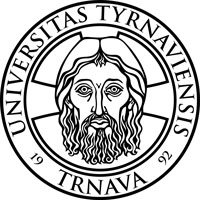
Trnava University
Trnavská univerzita je moderná univerzita s dlhoročnou tradíciou a bohatým dedičstvom. Trnavská univerzita založená v 17. storočí ponúkala vzdelanie študentom mnohých národov a zohrala významnú úlohu v dejinách strednej Európy, čím významne prispela k rozvoju európskeho vzdelávania a kultúry. Trnava bola prvým mestom na území dnešného Slovenska, ktorému v roku 1238 udelil uhorský kráľ Belo IV. výsady slobodného kráľovského mesta. 142 rokov existencie prvej univerzity v multietnickom Uhorskom kráľovstve predstavovali zlaté obdobie v histórii mesta.
Trnavská univerzita v roku 1992 obnovila svoju činnosť. Ide o verejnú univerzitu s piatimi fakultami. Filozofická fakulta bola jednou zo zakladajúcich fakúlt dnešnej univerzity. Filozofická fakulta sa od svojho vzniku rozvinula do známej vedeckej a vzdelávacej inštitúcie, kde sa spájajú tradície a nové prístupy. Hlavným poslaním Filozofickej fakulty, ktorá sa skladá z deviatich katedier, je poskytovať vysokoškolské vzdelanie vo filozofických, humanistických a spoločenských vedách. Cieľom fakulty je pripraviť špecialistov na klasickú archeológiu, klasické jazyky, kognitívne štúdiá, etiku, históriu, dejiny umenia a kultúry, filozofiu, politológiu, psychológiu a sociológiu. Univerzitný študijný systém pozostáva z bakalárskych, magisterských a doktorandských študijných programov. Trnavská univerzita sa aktívne zapája do Bolonského procesu a Filozofická fakulta spolupracuje s inštitúciami z celého sveta.
Web stránka: ff.truni.sk
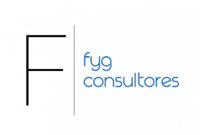
FYG
Instalofi Levante S.L. (FyG Consultores) je španielská súkromná vzdelávacia spoločnosť, zameraná na spoluprácu so spoločnosťami, dospelými a mladými ľuďmi v oblasti vzdelávania inovatívnych konceptoch, zakladaní podnikov, zamestnateľnosti, základných zručnostiach, písomnej a matematickej gramotnosti, podnikaní a školení mäkkých a tvrdých zručností.
FyG sa špecializuje na rozvoj podnikania a inovatívne riešenia týkajúce sa okrem iného poskytovania vzdelávacích kurzov pre malých a stredných podnikateľov, podnikateľov a start-upy. FyG, založená v roku 2001, predpokladá medzinárodné aktivity, a tak pomáha spoločnostiam definovať stratégie, ktoré im umožnia rásť na zahraničných trhoch. FyG tiež aktívne pôsobí ako vzdelávacia a školiaca spoločnosť, ktorá podporuje rozvoj dospelých a znevýhodnených skupín.
V posledných rokoch FyG vyvinula a implementovala niekoľko európskych projektov medzinárodnej spolupráce s programom Erasmus + a COSME, ktoré sa zaoberajú tvorbou a rozvojom podnikov, zamestnateľnosťou, riadením, školením pre start-upy, internacionalizáciou, gamifikáciou a inováciou podnikateľského vzdelávania. Dnes FYG spolupracuje so širokým spektrom verejných a súkromných ekonomických aktérov.
Web stránka: www.fygconsultores.com
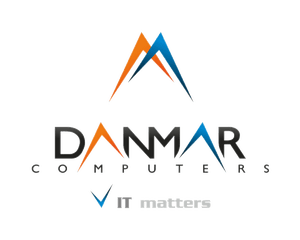
Danmar Computers
Danmar Computers LLC je súkromná spoločnosť pôsobiaca v oblasti IT a poskytujúca odborné vzdelávanie v tejto oblasti. Danmar má rozsiahle skúsenosti s vývojom moderných webových a mobilných aplikácií, využívaných na vzdelávacie účely. Danmar má tiež dlhodobé skúsenosti s realizáciou európskych projektov, v rámci ktorých výskumno-vývojoví pracovníci vykonávajú výskum a pripravujú školenia prispôsobené potrebám rôznych študentov. Počas 15 rokov Danmar úspešne zrealizoval viac ako 50 projektov v rámci programu Grundtvig, Leonardo da Vinci, Progress a nedávno aj Erasmus+.
V mnohých z týchto projektov bol Danmar zodpovedný za navrhovanie a koordináciu diseminačných stratégií. Danmar Computers je vývojárom a poskytovateľom AdminProject (adminproject.eu), on-line systému pre riadenie európskych projektov. Všetky aktivity spoločnosti sú založené na širokej a fungujúcej sieti spolupráce, a to na národnej i medzinárodnej úrovni. Národné siete zahŕňajú vzdelávacie a poradenské inštitúcie, univerzity, školy, mimovládne organizácie, ako aj spoločnosti súkromného sektora. Medzinárodná sieť zahŕňa partnerov rôznych profilov z každej krajiny Európskej únie. Poslaním Danmar Computers je podpora celoživotného vzdelávania a zabezpečenie rovnakého prístupu ku vzdelaniu pre všetkých s využitím moderných technológií.
Web stránka: www.danmar-computers.com.pl

The Institute of Social Sciences of the University of Lisbon
Inštitút sociálnych vied Univerzity v Lisabone (ICS) je multidisciplinárna univerzitná inštitúcia, ktorá produkuje vedecké poznatky o súčasných spoločnostiach. Tri hlavné oblasti činnosti ICS sú:
- Výskum publikovaný v národných a medzinárodne uznávaných časopisoch a knihách a šírený v sieťach a vedeckých stretnutiach;
- Postgraduálne programy úzko spojené s výskumami, prebiehajúcimi projektmi a sieťami medzinárodnej spolupráce;
- Dosah, najmä prostredníctvom Observatories on Portuguese Society (Observatórií portugalskej spoločnosti a výskumu), ktorý ovplyvňuje verejnú politiku, ako aj štúdií od súkromných a verejných aktérov. Vykonáva aj diseminačné aktivity vedeckých poznatkov pre neakademické publikum.
Tieto aktivity vyplývajú zo spolupráce medzi výskumníkmi z rôznych disciplín (sociálna a kultúrna antropológia, ekonómia, história, ľudská geografia, politológia, sociálna psychológia a sociológia), organizovaných do 7 výskumných skupín: impériá, kolonializmus a post-koloniálne spoločnosti; životné prostredie, územie a spoločnosť; identity, kultúry, zraniteľnosti; životný cyklus, nerovnosť a solidarita: prax a politika; energia, spoločnosť a globalizácia; režimy a politické inštitúcie; sociálno-politické postoje a správanie.
Web stránka: www.ics.ulisboa.pt
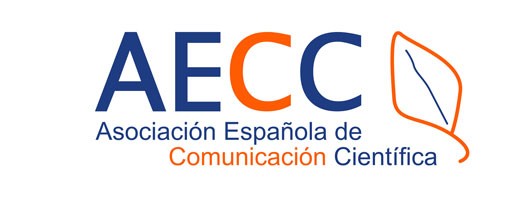
Asociación Española de Comunicación Científica
Asociación Española de Comunicación Científica (AECC) je španielska asociácia vedeckej komunikácie. AECC podporuje žurnalistiku a vedeckú komunikáciu v Španielsku, Európe a Latinskej Amerike a spája viac ako 400 španielskych novinárov a komunikátorov z oblasti vedy, techniky, zdravia a životného prostredia.
Niektoré z cieľov AECC sú:
- Podporovať prítomnosť vedeckých informácií v médiách.
- Podporovať obmenu novinárov a komunikátorov.
- Zabezpečiť nezávislosť a objektívnosť informačného obsahu a slobody prejavu.
- Uľahčiť dialóg a vzťahy s informačnými zdrojmi.
- Zastupovať svojich členov pred verejnými orgánmi a súkromnými subjektmi.
Aktivity AECC sa zameriavajú na organizovanie seminárov, workshopov, kolokvií, kurzov a stretnutí medzi novinármi a vedcami, a to s dvomi cieľmi: diskutovať o aktuálnych vedeckých témach, ktoré môžu byť využité novinármi a komunikátormi a nadviazať osobné a priateľské vzťahy medzi nimi a vedcami, aby sa dosiahla plodná spolupráca pre vedu a spoločnosť.
AECC patrí do Európskej asociácie vedeckých novinárov (EUSJA) a Svetovej federácie vedeckých novinárov (WFSJ).
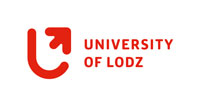
University of Łódź, Faculty of Economics and Sociology
Univerzita v Lodži (UŁ) bola založená v roku 1945 a má viac ako 32 000 študentov a 2 200 akademických pracovníkov. Nachádza sa v Lodži, ktorá je tretím najväčším mestom v Poľsku, čo sa týka počtu obyvateľov s približne 700 000 obyvateľmi. Na Univerzite v Lodži je 12 fakúlt pokrývajúcich 80 študijných odborov. Kurzy sa vyučujú v poľštine, angličtine a francúzštine, a to aj na doktorandskom a postdoktorandskom stupni. Univerzita v súčasnosti realizuje viac ako 360 výskumných projektov financovaných Európskou komisiou, Národným vedeckým centrom, Národným centrom pre výskum a vývoj, Ministerstvom vedy a vysokoškolského vzdelávania, a podobne. Univerzita je zaradená v rankinku QS World University Rankings a Európskou komisiou bola ocenená logom HR Excellence in Research. Univerzita má silnú medzinárodnú spoluprácu (161 ERASMUS+ dohôd v 23 krajinách a 97 medzinárodných dohôd o spolupráci s vysokoškolskými inštitúciami). Je členom: Európskej asociácie univerzít (EUA), Aliancie univerzít pre demokraciu (AUDEM), INTER-Univerzity v Dubrovníku, Agence Universitaire de la Francophonie (AUF), Asociácie európskych škôl plánovania (AESOP), COPERNICUS-CAMPUS Univerzity aliancie pre udržateľnosť. UŁ je aj účastníkom mnohých projektových sietí európskych univerzít.
Fakulta ekonómie a sociológie bola založená v roku 1965 a je najväčšiou na Univerzite v Lodži s viac ako 6 000 študentmi a približne 400 vyučujúcimi. Výskumná a didaktická práca sa vykonáva v ôsmich inštitútoch v oblastiach ako: aplikovaná ekonomika a informatika, ekonometria, ekonomika, financie, medzinárodná ekonómia, sociológia, priestorová ekonomika, štatistika a demografia. Pracovníci fakulty úspešne riadia medzinárodné granty a výskumné projekty a spolupracujú s viac ako 50 univerzitami z Európy, Severnej a Južnej Ameriky a Ázie. Je to vysoko internacionalizovaná fakulta s množstvom zahraničných študentov, hosťujúcich výskumníkov a medzinárodných projektov a vedeckých iniciatív.
V projekte H2020 CONCISE bude tím v Lodži uskutočňovať verejné konzultácie v Poľsku, viesť prípravu a organizovanie verejných konzultácií v ďalších štyroch krajinách (Taliansko, Španielsko, Slovensko a Portugalsko) a aktívne sa zúčastňovať na výskumných, publikačných a diseminačných aktivitách.
Web stránka: www.eksoc.uni.lodz.pl
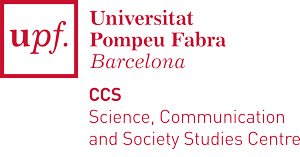
Studies Centre on Science, Communication and Society
Studies Centre on Science, Communication and Society (SCS-UPF): je výskumným centrom Katedry experimentálnych a zdravotníckych vied Universitat Pompeu Fabra (UPF). Cieľom je zblížiť spoločnosť a vedu podporovaním vedeckých poznatkov a kultúry, pričom sa usiluje o zosúladenie výskumno-vývojovo-inovačných potrieb a hodnôt spoločnosti.
Hlavné aktivity:
- Vedecká komunikácia a občianska participácia: vedecké komunikačné aktivity, zapojenie verejnosti, vedecká diseminácia, inštitucionálna komunikácia, krízová komunikácia, a okrem iného aj vedecká muzeológia.
- Analýza: štúdium vzťahov vedy a spoločnosti, sociálne vnímanie vedy, hodnotenie, hodnotenie dopadu, výber indikátorov a pod.
- Vzdelávanie: špecializované formatívne programy v oblasti vedeckej komunikácie
